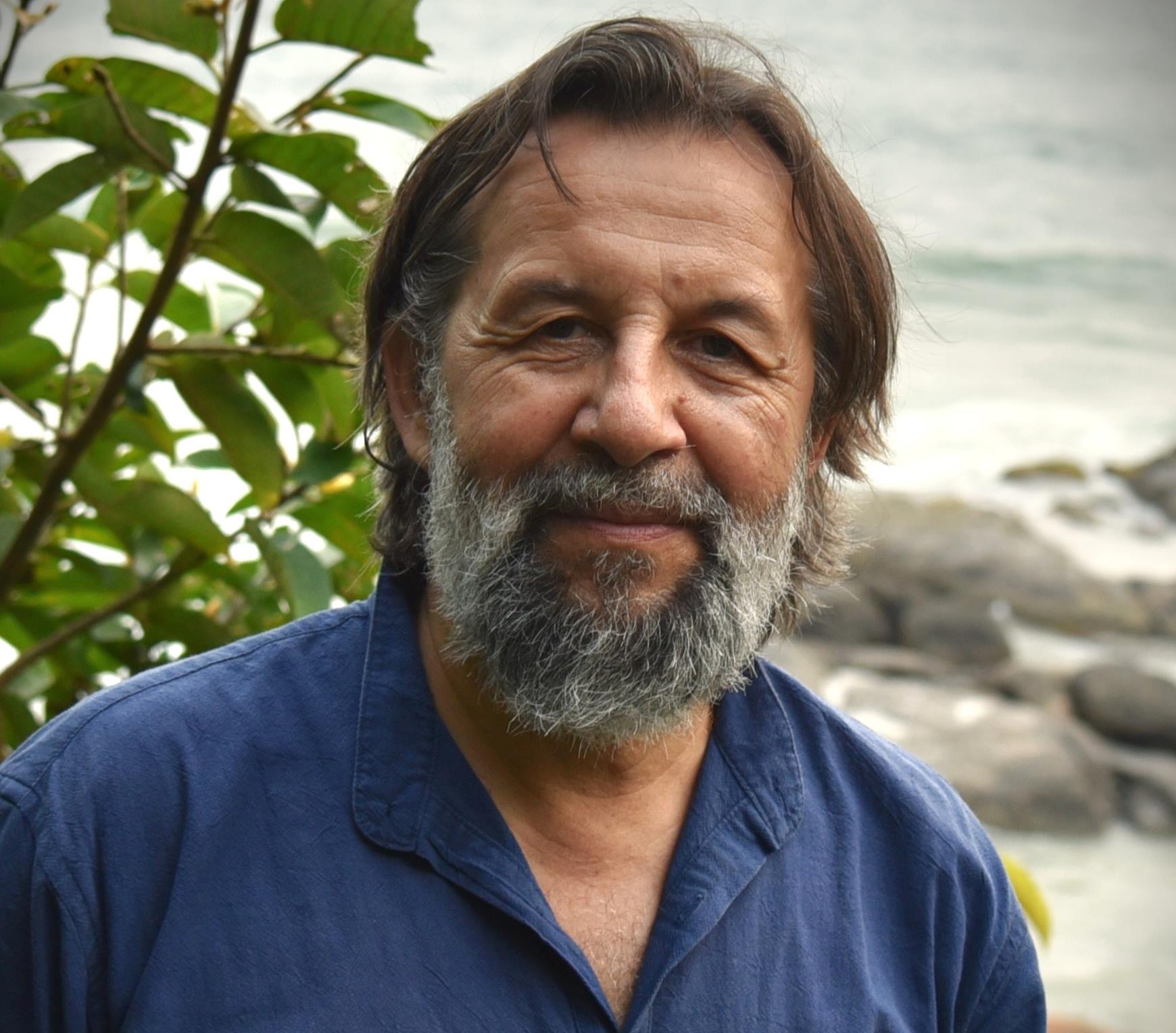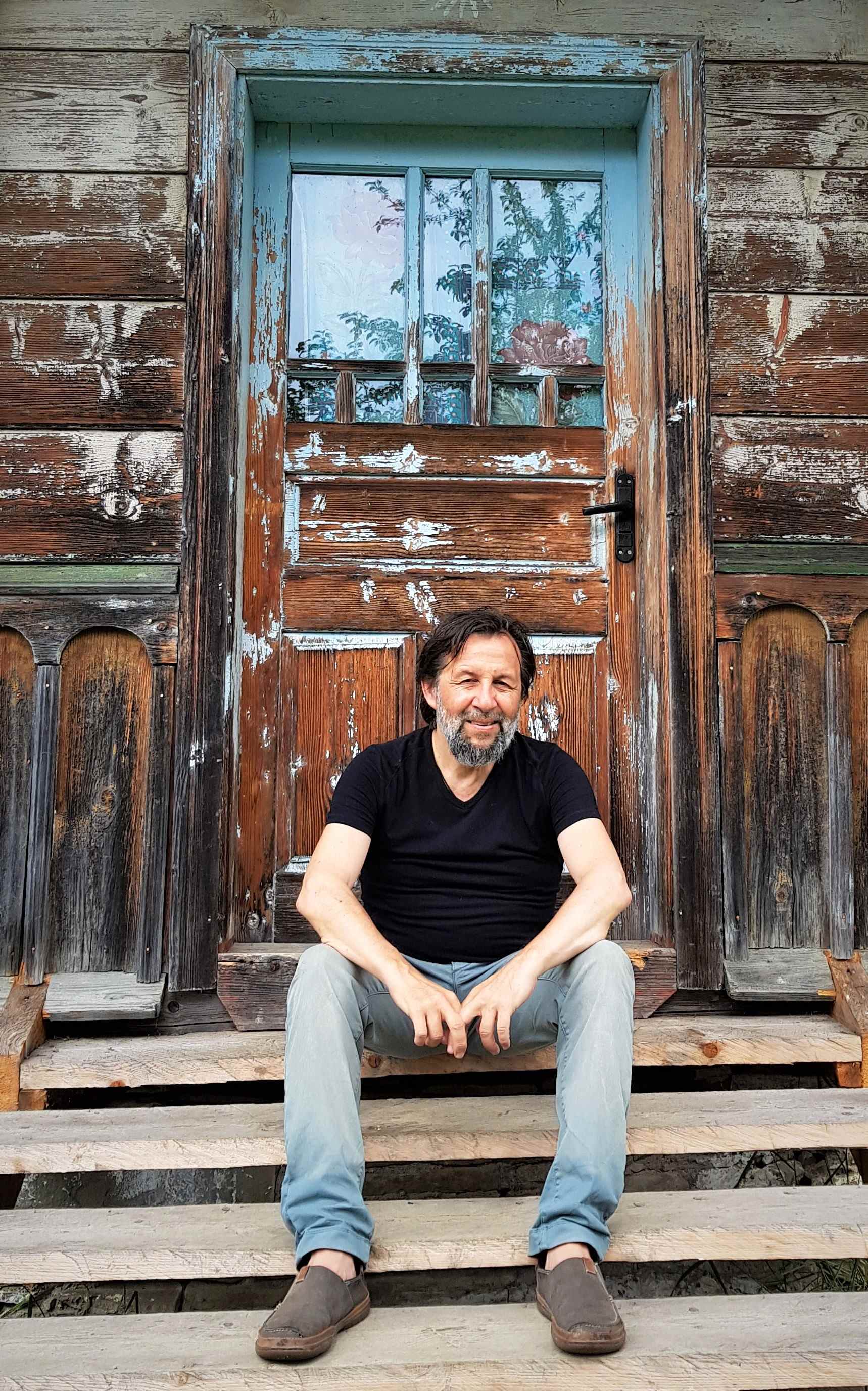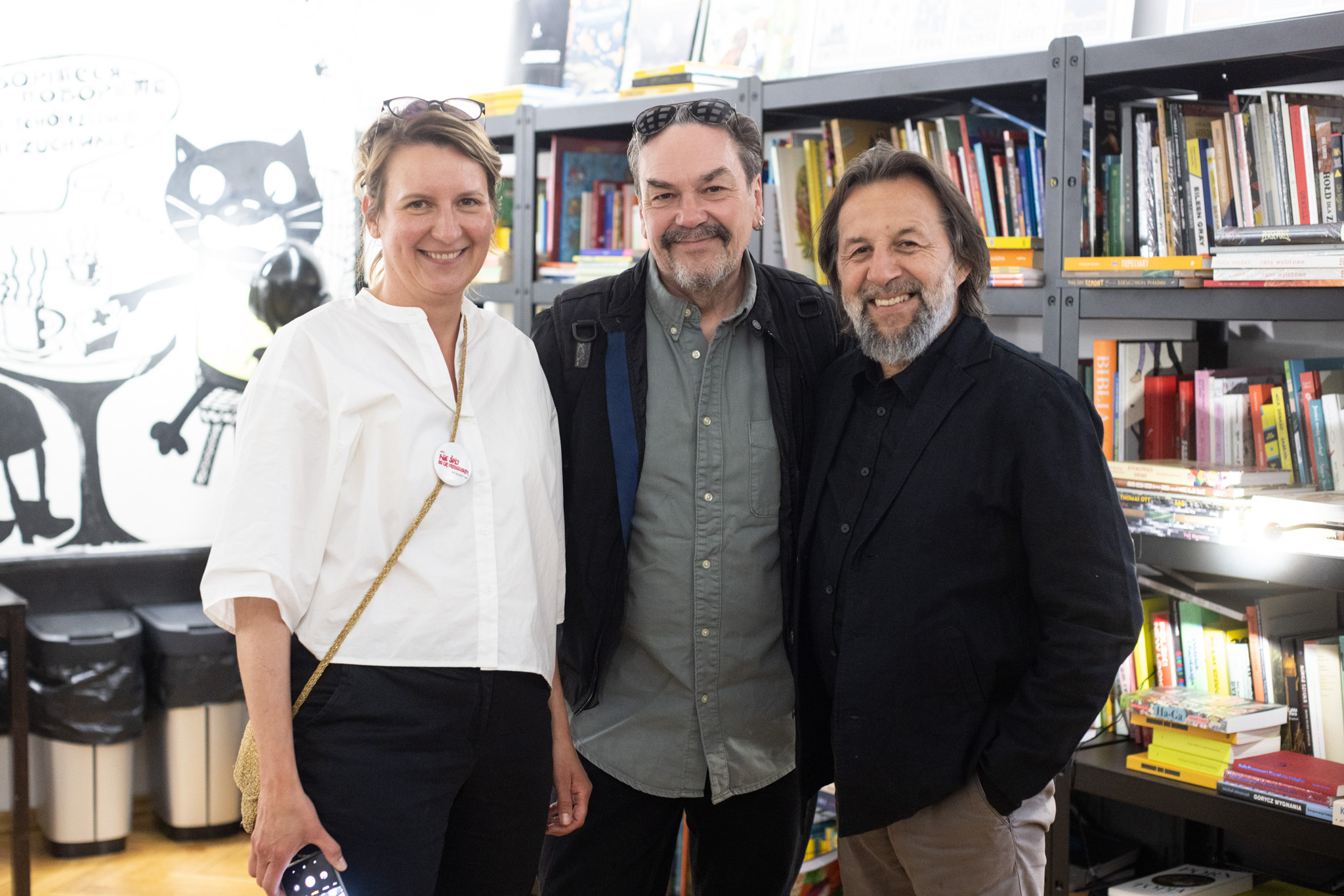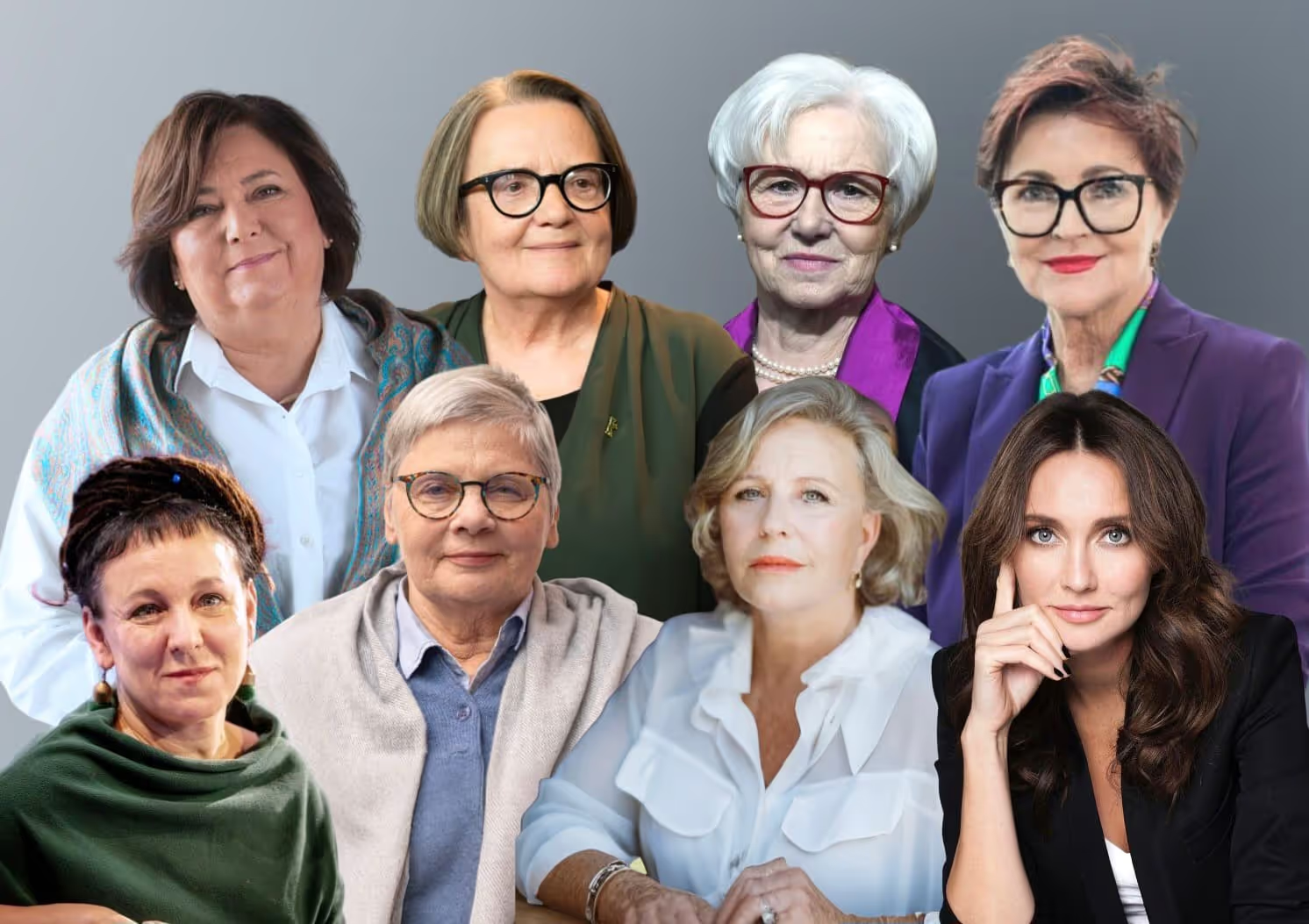Support Sestry
Even a small contribution to real journalism helps strengthen democracy. Join us, and together we will tell the world the inspiring stories of people fighting for freedom!
At the beginning of the 20th century, the newly established Ukrainian People's Republic needed brave and intelligent representatives worldwide to prove its capability as an international player, achieve recognition of the UPR as an independent state, tell the truth about Ukrainians' struggle against the Bolsheviks, and counter the fabrications of Russian propaganda.
- It needed not only male representatives but also female representatives, - says the Head of the Scientific Society of the History of Diplomacy and International Relations, Doctor of Historical Sciences, Professor Iryna Matiash. - Researching the history of Ukrainian diplomacy, I have often found that women were notable in the Ministry of Foreign Affairs or foreign missions.

«In 1917-1919, foreign missions of more than thirty countries operated in Ukrainian cities»
Olha Pakosh: You presented two of your scientific works in Krakow - «The Female Face of Ukrainian Diplomacy. Essays. Memoirs. Interviews» and «Shared Places of Memory of Ukraine and Poland. Official and Cultural Diplomacy». How did your interest in women in diplomacy begin?
Iryna Matiash: This interest arose because I have been researching the history of the diplomatic and consular service for a long time. Furthermore, I have the honour of heading the Scientific Society of the History of Diplomacy and International Relations. From 2017 (the year of 100th anniversary of the Ukrainian diplomatic service) to 2021, under the patronage of the Ministry of Foreign Affairs of Ukraine, we implemented the scientific and educational project «A Century of Ukrainian Diplomacy», organised youth meetings «European Values and Cultural Diplomacy» with the support of the Hanns Seidel Foundation in Ukraine, and launched, shortly before the full-scale invasion, the project «Ukraine - the World: 30 (104)».
However, the study of the history of Ukrainian diplomacy began even earlier when I was the Director of the Ukrainian Research Institute of Archival Affairs and Records Management.
In preparation for the 90th anniversary of the Ukrainian diplomatic service, we organised an exhibition of archival documents and showed foreign ambassadors in Kyiv the originals, which confirmed the presence of their countries' diplomatic representatives in Kyiv in 1918-1919. Since then, this topic has never left me.
Not everyone knew that the Ukrainian People's Republic and the Ukrainian State of Hetman Pavlo Skoropadskyi had official contacts with many countries and that during 1917-1919, foreign missions of more than thirty countries operated in Ukrainian cities.
Ukraine also sent its embassies and extraordinary diplomatic missions to various countries. The first UPR missions were sent to the signatory countries of the Treaty of Brest-Litovsk during the Central Rada period. Under the Hetmanate, embassies were established in Germany, Austria-Hungary, Turkey and Bulgaria, as well as in Switzerland and Finland, missions appeared in Romania and the Scandinavian states, and representatives were appointed to the Kuban government and the Government of the Don Cossacks.
The largest number of diplomatic missions was sent by the Directorate of the UPR
Between December 1918 and January 1919, diplomatic missions were sent to Belgium, the United Kingdom, Greece, Denmark, Estonia, Italy, Latvia, Poland, Romania, the Holy See, the USA, Hungary, Czechoslovakia, Sweden, Switzerland and the Caucasus to convey the truth about Ukraine and its struggle for independence to the international community.
The delegation to Paris was tasked with securing recognition of the UPR's independence by the participating states of the Paris Peace Conference, the withdrawal of foreign troops from Ukrainian territory and assistance in the fight against the Bolsheviks. To support this mission, the Ukrainian Republican Capella, led by Oleksandr Koshyts, was sent on a musical mission.
The diplomatic struggle for recognition of Ukraine's independence by European countries continued until 1926
This struggle lasted until the end of the final extraordinary diplomatic mission of the UPR in Hungary in 1924 and the formal closure of the UPR Embassy in Switzerland in 1926.
Meanwhile, Russians consistently tried to portray that Ukraine lacked diplomacy at that time and had no international contacts. By doing so, Russian scholars attempted to deny Ukraine’s statehood, as they did with other nations that were unfortunate enough to be part of the Soviet Union.
Our project «A Century of Ukrainian Diplomacy» aimed to honour Ukrainian diplomats of the Ukrainian Revolution of 1917-1921, conduct scientific and educational activities and refute Russian theses about the inability of the Ukrainian diplomatic service to function as a state institution.

In the second project, «Ukraine - The World 30 (104): Official and Cultural Diplomacy», we sought to demonstrate that Ukrainian diplomacy did not emerge after the restoration of Ukraine’s state independence but rather a century ago. It was crucial for us to preserve this historical connection and nurture institutional memory. We recorded interviews with the first ambassadors of independent Ukraine in the early 1990s, who deposited these interviews for preservation at the Central State Archive of Audiovisual and Electronic Documents.
Researching thousands of pages of archival documents for documentary exhibitions and monographs, I always subconsciously searched for women's names. I tried to answer questions such as: who was the first woman in the Ukrainian diplomatic service? Were women allowed into leadership positions? What challenges did diplomats' wives face? How did their lives turn out? This led to the idea of highlighting the role of women in diplomacy through the figures of career diplomats and diplomats' wives, as wives are also a formidable force in diplomacy. Thus, the project «The Female Face of Ukrainian Diplomacy» was born.
Repressions against Ukrainian female diplomats
- Did this inspire you to focus on the figures of women?
- Rather, it encouraged archival searches, as information about women working in diplomatic positions is quite scattered, and memoirs often contain inaccuracies and subjective assessments.
Speaking of the beginnings of Ukrainian diplomacy, it is worth mentioning the establishment of the General Secretariat of International Affairs on December 22nd 1917. It was primarily staffed by young men, with the average age of senior officials around 30. For example, Oleksandr Shulhyn was 28 when he was appointed as the first Minister of Foreign Affairs.
The first woman to hold a leadership position in the Ministry of Foreign Affairs was Nadiia Surovtsova. She entered the diplomatic service by chance but became not only the first woman to head a structural unit of the ministry but also the first spokesperson of the MFA. She began using tools that are now well-established in public diplomacy: organising an exhibition of Ukrainian embroidery and a library of Ukrainian books for the diplomatic mission at the Paris Peace Conference. Later, she used charity concerts and Ukrainian fashion shows to raise funds to support the starving in Ukraine.
By the way, in Poland, a similar position was held by Kazimiera Iłłakowiczówna, a prominent writer, poet, translator, diplomat and personal secretary to Marshal Józef Piłsudski.
As for inspiration - that would be Kateryna Hrushevska. She was the daughter of the prominent historian and head of the Ukrainian Central Rada, Mykhailo Hrushevsky, a researcher of Ukrainian folk ballads and the mythology of the world's peoples, the youngest member of the Taras Shevchenko Scientific Society in Lviv, editor of the journal «Primitive Society», an ethnologist and a victim of the repressive Soviet regime. Kateryna became one of my main heroines, prompting me to pay special attention to the figures of women in diplomacy.

Incidentally, in her mother Maria Hrushevska’s activities as the wife of the head of state (Mykhailo Hrushevsky was the head of parliament, the position of president did not exist then), one can observe the emergence of elements of public diplomacy of the first lady. According to contemporaries, Maria Hrushevska tried to correspond to her status, including in her clothing style. She followed fashion and had an appropriate wardrobe with outfits for «evening», «visiting», «strolling» and «folk» styles for participating in various cultural and social events, gatherings and business meetings. The use of vyshyvankas for public events to promote national dress can be considered an element of fashion diplomacy.
- Returning to Nadiia Surovtsova, what specifically caught your attention in her story?
- Her story is full of unexpected twists of fate. In January 1919, Nadiia Surovtsova was sent to Paris as secretary of the information bureau of the UPR delegation to participate in the Peace Conference. The plan included creating a Ukrainian library or at least a shelf of Ukrainian books. The delegation also included Dmytro Dontsov, head of the Ukrainian Telegraph Agency and Oleksandr Shulhyn, the first Minister of Foreign Affairs of the UPR.
However, most members of the delegation did not manage to reach Paris.
Returning to Kyiv was also impossible because, in early February 1919, the Bolsheviks captured the city. Many Ukrainian diplomats remained abroad. Nadiia moved to Vienna. Fluent in French and German, she initially studied at the University of Vienna and defended her dissertation on Bohdan Khmelnytsky and the Ukrainian state idea.

Soon, a diplomatic mission of Soviet Ukraine, headed by Yurii Kotsiubynsky, was established in Vienna. Among the tasks of such missions was countering the diplomatic activities of the UPR missions, which were still active in some countries. Trusting Kotsiubynsky, Surovtsova began collaborating with Soviet diplomats, participated in various events they organised and started changing her beliefs, taking an interest in the communist movement. In the spring of 1925, Nadiia returned to Kharkiv, full of hope, but she was soon repressed and exiled to Stalin’s labour camps. In exile, she realised how tragically she had been mistaken and the true evil of Soviet propaganda. She had to endure the full horrors of the GULAG.
After her release and rehabilitation, Nadiia Surovtsova returned to Uman, engaged in community activities and wrote literary works and memoirs. In her diaries, which she began writing in exile, she rethought her experiences, candidly described her mistakes and tried to erase that time from her life. Nevertheless, her diplomatic service remained the brightest part of her life.
- How did you collect materials for this research?
- That is precisely why I began discussing Nadiia Surovtsova. While reading her memoirs, I noticed certain details or inaccuracies that could only be verified through archival documents. These are scattered across various archives. The main body of archival documents related to diplomatic history, including information about Nadiia Surovtsova, is held in the Central State Archive of Supreme Authorities and Government of Ukraine. Here, one can find collections of the Ministry of Foreign Affairs of the UPR, diplomatic missions, foreign diplomatic representations and consulates, diplomats’ personal documents and diplomatic passports.
Extremely significant for such research are also the documents of Ukrainian emigrant organisations and figures, particularly those from the so-called Prague Archive, part of which is also preserved in the Central State Archive of Public Associations and Ukrainica. This unique collection of documents was declassified in the 1990s. A separate collection dedicated to Nadiia Surovtsova is stored in the Central State Archive-Museum of Literature and Art of Ukraine. Thus, her diplomatic career was reconstructed «drop by drop».
- I can imagine the meticulous work of reviewing hundreds of documents in search of one that might summarise everything previously found or, conversely, change the narrative entirely. What discovery impressed you the most?
- It should be noted that most female diplomats of the Ukrainian Revolution of 1917-1921 were forced into exile or repressed. Therefore, in addition to Ukrainian archives, it is necessary to explore foreign archives.
Also deserving attention are the cases of repressed individuals held in the Sectoral State Archive of the Security Service of Ukraine, and partially in the Central State Archive of Public Associations and Ukrainica. Archival research is a true detective story. It is captivating! I have always encouraged my students to approach research from this perspective. Search, assemble the pieces and build logical connections. This is how the necessary data can be uncovered.
One noteworthy discovery was Kateryna Hrushevska’s diary, found in the Central State Historical Archive in Kyiv within the Hrushevsky family collection. It had not been identified as Kateryna’s diary but was bound together with Maria Hrushevska’s diary. The manuscript contains valuable descriptions of their stay in Switzerland. I published this text in the Ukrainian Historical Journal.
Among the finds in foreign archives, my favourite is «The Diplomatic History of Ukraine» by Yevhen Slabchenko (Eugène Deslaw). Thanks to the «Klio» publishing house and the «Ukrainian Book» programme, this manuscript, discovered in Winnipeg, was published in Ukraine.
Another striking find was diplomatic passports. When you least expect to find a photo of the person you are researching and stumble upon an official document...
- Whose?
- It was incredibly significant for me to find Maria Bachynska’s passport. It is also preserved in the Central State Archive of Supreme Authorities and Government of Ukraine. A delicate, refined woman with a steel character, convictions and values. However, in the diplomatic passport photo, she appears rather informal.

- Maria Bachynska - she was Dmytro Dontsov’s wife, correct?
- Yes. By the way, Maria Dontsova (Bachynska) was both a woman holding a diplomatic position and the wife of a diplomatic mission staff member. Dmytro Dontsov headed the Information Bureau of the UPR Embassy in Switzerland for some time, while Maria worked as a staff member of the UPR diplomatic mission in Denmark. She was fluent in several foreign languages, which was an exceptional advantage when selecting candidates for diplomatic missions. Unfortunately, we have not yet located Maria Dontsova’s grave in New Jersey. I hope we will find it someday.
Contemporary stars and key qualities of Ukrainian diplomacy
- In modern Ukraine, female diplomats are fortunately no longer a rarity. Whom would you highlight?
- In the early 1990s, female diplomats were still a great rarity. But this was not only the case in Ukraine, it was a global trend. For instance, Nina Kovalska, Tetyana Izhevska and Natalia Zarudna recall that at the beginning of the 1990s, there were only three or four women in diplomatic positions, and the idea of a woman becoming an ambassador was entirely unrealistic.
- Who was the first female ambassador in independent Ukraine?
- After regaining independence, Nina Kovalska became the first woman appointed as an ambassador, and Natalia Zarudna became the first woman in the leadership of the Ministry of Foreign Affairs of Ukraine, serving as Deputy State Secretary of the Ministry.
In February 1998, Nina Kovalska was appointed to Switzerland and Liechtenstein, and in July, to the Holy See (Vatican) - initially concurrently, and in 2000 as a resident ambassador.
This was an unprecedented case not only in the history of relations between Ukraine and the Holy See but also in the history of Ukrainian diplomacy as a whole, as it was the first time a woman was appointed as an ambassador to such a specific place
The embassy consisted only of her and a driver, and the entire mission operated from a single room - an incredibly modest setup. Overall, I believe that our women in diplomatic positions are people with «thirty hands and thirty heads» in the best sense: they know and can do everything. Nina Kovalska exemplified this vividly: she gave interviews, hosted students, organised the first Ukrainian-Italian conference, and made maximum efforts to prepare for Pope John Paul II's visit to Ukraine despite Russian opposition. Her work was recognised both by Ukraine and the Holy See, earning her distinctions. Nina Kovalska left the Vatican at the end of her tenure with the Grand Cross of the Order of Pius IX.
After her, another extraordinary woman, Tetyana Izhevska, was appointed ambassador to the Holy See and the first ambassador of Ukraine to the Sovereign Military Order of Malta. She served there for almost 13 years. It was Tetyana Izhevska who was called a star of diplomacy by her Polish colleague.

- Has the presence of women in diplomatic service and missions influenced the quality of diplomatic service and negotiation processes?
- This seems to be a stereotype. We have debated this topic extensively, which is why we consciously chose the term «women in diplomacy» rather than «women’s diplomacy». In our concept, the notion of «women in diplomacy» encompasses career diplomats, diplomats’ wives and leaders in the field of public diplomacy. Most successful women in ambassadorial roles respond to this question in the same way: there is no such thing as «women’s» or «men’s» diplomacy - only professionalism and a calling. To be effective in diplomacy, one must always remember the well-known three keys to diplomacy of Hennadiy Udovenko: the first is professionalism, followed by patriotism and integrity.
These qualities are not dependent on gender but on the level of education, the ability to apply knowledge in practice and self-control. Psychological resilience, language skills, negotiation ability and other factors also play a crucial role. Female diplomats emphasise that a woman’s smile is not a key argument in negotiations. The defining factor is professionalism.

Journalist, editor. She has lived in Poland since 2015 and has worked for various Ukrainian publications: «Postup», «Livyi Bereg», «Profil» and «Realist.online». She is the author of publications on Ukrainian-Polish cooperation, covering topics such as economic and border issues, cultural heritage and commemoration. She is also a co-organiser of journalistic initiatives promoting Ukrainian-Polish friendship. She has worked as a trainer for the EU programme «Women’s and Children’s Rights in Ukraine: Communication Component». Her interests include personal development and neurolinguistic programming, among others.






